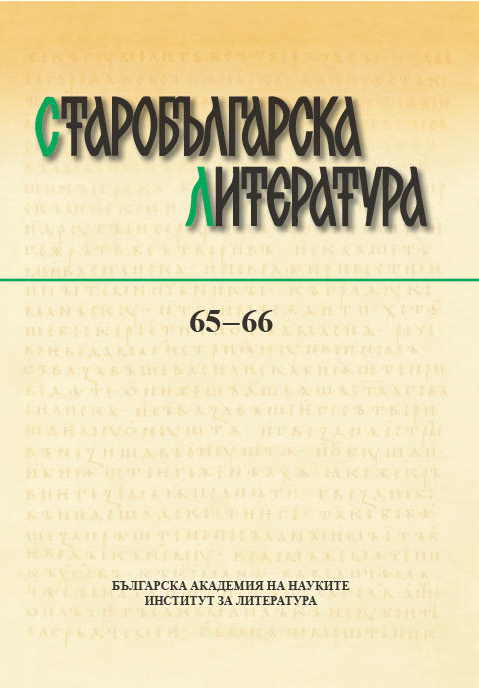Името ομο(y)ρταγ в българскитe надписи от IX век
The Name ΟΜΟ(Y)ΡΤΑΓ in Bulgarian Inscriptions of the Ninth Century
Author(s): Kiril NenovSubject(s): History, Middle Ages
Published by: Институт за литература - БАН
Keywords: medieval Bulgarian inscriptions; pagan Bulgarian names; Omurtag; ninth-century Bulgaria; medieval Greek
Summary/Abstract: Since the end of the nineteenth century and based on the well-known medieval Bulgarian inscriptions, this ruler’s name has traditionally been presented in modern historiography with the initial sound o-: Omortag, Omurtag, and even Omărtag. These forms are based on the belief that all letters of the string are an integral part of the ruler’s name. As early as 1945, however, Henri Grégoire noted that the initial o- in this name represents the masculine singular nominative form of the Greek definite article. Veselin Beshevliev claims that this is not the case with the name Omurtag, because in “the Proto-Bulgarian expressions κανα συβηγη Ωμουρταγ this name always appears with o- in the beginning”. In defence of this opinion, the Bulgarian philologist gives as an example the use of the name Malamir in inscriptions: κανα συβηγη Μαλαμηρ when combined in a Bulgarian expression, but ὁ Μαλαμιρ when used in a Greek sentence. However, the examples from the Bulgarian inscriptions of the ninth century testify rather to the existence of a different approach in compiling the texts and, possibly, to different compilers. In the first model, probably a Greek definite article is used before the name of the ruler despite the Bulgarian title preceding it; in the second, the Bulgarian expression is not governed by Greek grammatical rules, while the third completely ignores the definite article before the names until the Greek words appear in the text. The detailed examination and analysis of the letter series ΟΜΟΡΤΑΓ / ΟΜΟYΡΤΑΓ from the Bulgarian inscriptions of the ninth century gives grounds to consider it equivalent to ὁ Μορταγ / ὁ Μουρταγ. Whether the two forms were used synchronously or during different periods in the Bulgarian epigraphic monuments cannot be established at this stage. Their eventual chronological dependence could otherwise contribute to the dating of the inscriptions according to the use of one of the two records of the anthroponym. From the point of view of the proposed arguments, the name of this Bulgarian ruler should be rendered as Mortag / Murtag, without insisting that each phoneme corresponds to its original pronunciation. Regarding the origin of the appellation, at this stage the most plausible hypothesis is that it is connected with names from the Iranian group of languages, but its etymology cannot be considered definitively established.
Journal: Старобългарска литература
- Issue Year: 2022
- Issue No: 65-66
- Page Range: 127-151
- Page Count: 25
- Language: Bulgarian
- Content File-PDF

